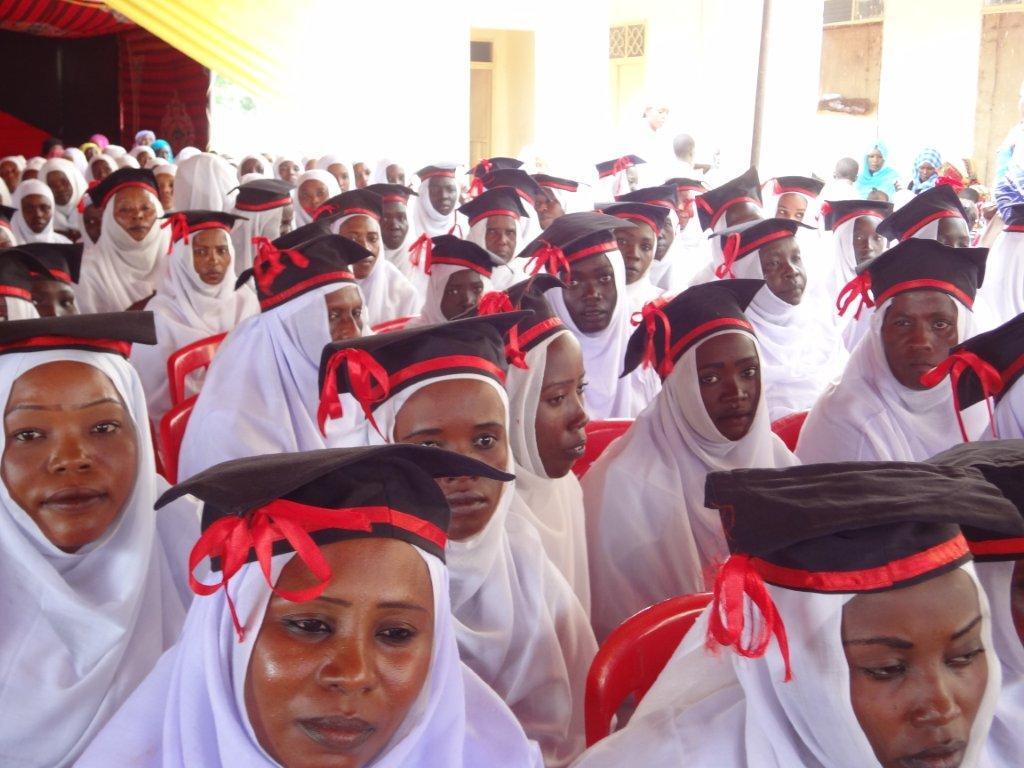Fifty Village Midwives graduated from Damazin Midwifery School and they will be deployed to rural and remote areas to help reduce maternal death and improve maternal health in the Blue Nile state.
Fifty Village Midwives graduated from Damazin Midwifery School and they will be deployed to rural and remote areas to help reduce maternal death and improve maternal health in the Blue Nile state.
UNFPA supported the training of 30 midwives while the Community Development Fund of Guisan locality supported the other 20. Graduating midwives received theoretical and applied training in primary care for pregnant women, delivery and early detection of danger signs. Also as part of the training, the understanding that the role of the midwives includes awareness-raising and health education, encouraging breast feeding, combating harmful practices such as Female Genital Mutilation/Cutting as well as the routine reporting on maternal death.
“Midwives’ crucial role in strengthening maternal and new-born health necessitates giving them paid jobs as part of the health cadres,” said Elhindi Elrayiah who represented the Blue Nile Wali (Governor) at the graduation ceremony. He pledged to hire all graduating students as paid employees.
Huwayda Yaseen Hamid, Blue Nile Minister of Health, urged the Wali representative to create jobs for midwives in rural and remote villages since, in most cases, they are the only health cadres available in these areas.
“The graduation of 50 Village Midwives today is a result of tireless work and dedication by the graduating students themselves, the tutors, State Ministry of Health and UNFPA staff in Damazin and in Khartoum,” said Pamela DeLargy, UNFPA Representative in Sudan.
All this hard work, dedication and success; added DeLargy; will translate into real improvement in the services. “More women and newborns will have better care delivered by well-trained midwives who are confident in their skills and well aware of their big responsibility and role in their communities,” she noted. DeLargy encouraged more families to send their daughters to midwifery training.
“We in Blue Nile state, are grateful to UNFPA which has changed the face of Reproductive Health in the State,” said Dr. Asim Tenfafe, Reproductive Health Coordinator at the State Ministry of Health. UNFPA supports training, rehabilitation of health facilities and provides equipment; to mention a few, he added.
Dr. Tenfafe reiterated the need for more coordination between partners working in health across the state.
Coincided with the graduation ceremony, was the biannual meeting of the state’s Maternal Death Review Council – a regular forum where Reproductive Health partners discuss issues relating to reducing and reporting maternal death and recommend the needed response.
Almost 60% of rural areas in Sudan do not have access to midwifery services. Although village midwives are the main care providers in rural areas and usually a trusted member in their communities, most of them are not trained and poorly paid in cash or in kind by the families that receive the services. Only recently, some states have announced plans to hire midwives as paid employees.



